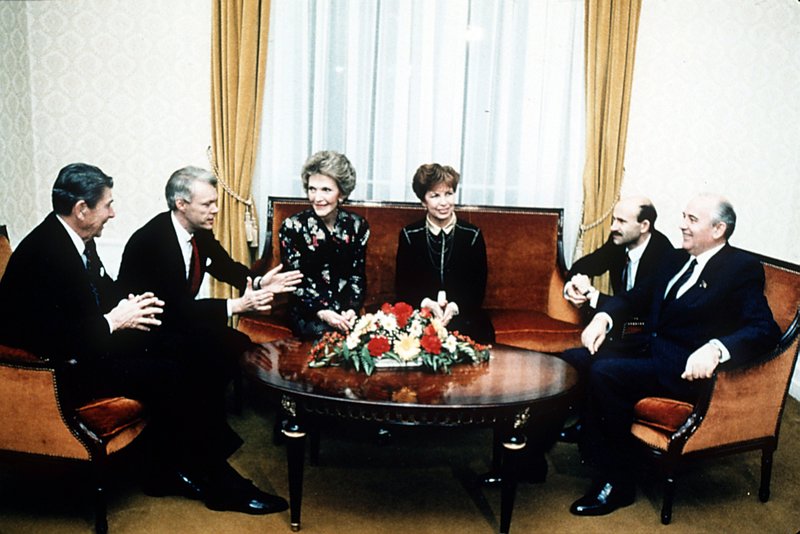WASHINGTON -- When President Donald Trump and Russian President Vladimir Putin met alone this week in Helsinki, Finland, only two others were in the room where it happened -- their interpreters. Some Democrats want the American translator to reveal what happened in a meeting that remains shrouded in mystery.
Diplomatic interpreters speak when they're spoken at, and that's about it. They are innermost witnesses to international history, but ultradiscreet ones, tasked with reflecting as accurately as possible and in nearly real time the words and context of conversations crossing the language barrier.
Diplomatic experts know of no modern precedent for making interpreters come forward. The man who translated for President Ronald Reagan in his historic first meeting with Soviet leader Mikhail Gorbachev in 1985 -- alone in the room with them and his Soviet counterpart -- thinks it's a bad idea.
"I have never heard of such a thing and am appalled," Dimitry Zarechnak, long retired from the State Department, said of the push by Democrats to subpoena the Trump interpreter. "If that were possible, then no foreign leaders would want to meet with any of our leaders."
"It is utterly amazing, utterly amazing, that no one knows what was said," Senate Democratic leader Charles Schumer said Thursday as Republicans in the House blocked one effort to bring the interpreter to a closed hearing.
After days of Trump's varied statements about the meeting, the public is no closer to knowing whether Trump called Putin to account for Russia's interference in the 2016 election or anything else.
It's unclear whether either side recorded the conversation or whether detailed notes are circulating in the Kremlin or across the Trump administration. White House spokesman Sarah Huckabee Sanders said she was not aware of a recording of the meeting.
With their eye on the historical record, and the value of having the best thinkers and subject experts at a president's side, diplomats get the jitters when a president meets one on one with another leader, with only interpreters in the room. Their concern heightens when the leader is an adversary like Putin or North Korea's Kim Jong Un, both of whom met Trump with interpreters only. Absent corroborating witnesses and a detailed account, misunderstandings and malign interpretations can emerge.
When interpreters are the only extras, they are sometimes called on to help establish a record.
So it was for Zarechnak. He provided what's known as consecutive translation at the Reagan-Gorbachev summit, alternating with another U.S. interpreter in the series of one-on-one leader meetings.
That means he took notes on Reagan's remarks and, during a pause, read them to Gorbachev in Russian. The Soviet leader in turn had his remarks translated by his interpreter and read to Reagan in English. This differs from the protocols for simultaneous translation used at bilateral news conferences, U.N. speeches and the like.
It leaves a record -- a notebook -- and Zarechnak's became the basis for the official U.S. "memorandum of conversation" that eventually emerged from the meetings. But he wasn't compelled to disclose it under subpoena and didn't go around talking about it.
For Trump and Putin, it may be that what happened in Helsinki stays in Helsinki.
Information for this article was contributed by Matthew Lee of The Associated Press.
A Section on 07/21/2018
